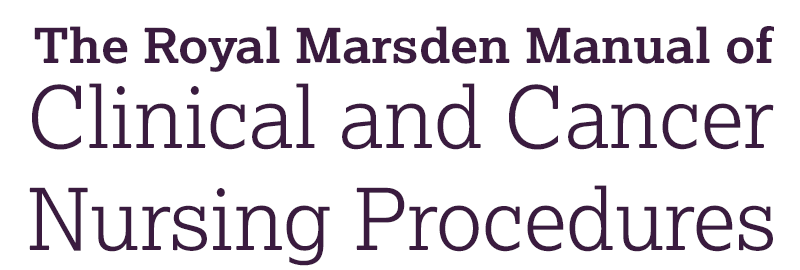Chapter 14: Observations
Skip chapter table of contents and go to main content

Definitions
The Royal Marsden Manual Online edition provides up-to-date, evidence- based clinical skills and procedures related to essential aspects of a person’s care.






